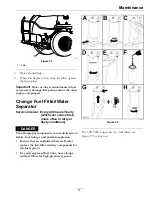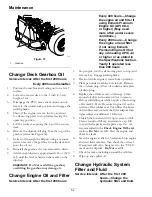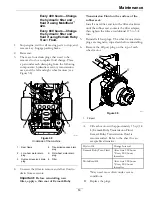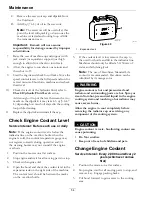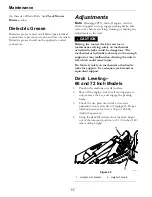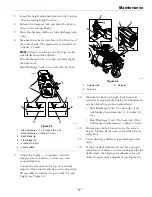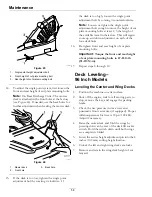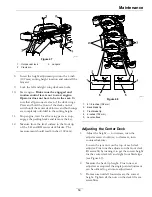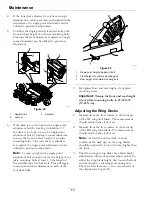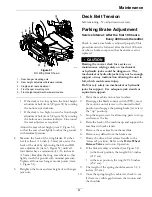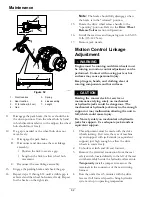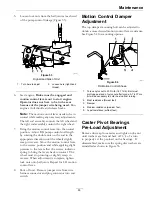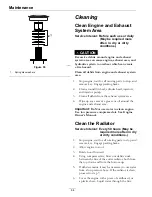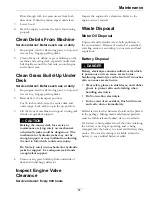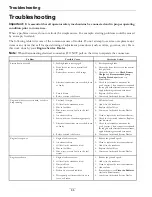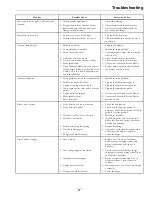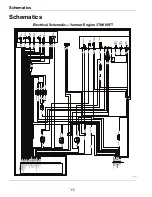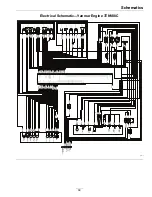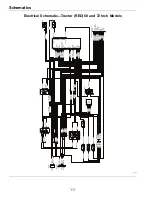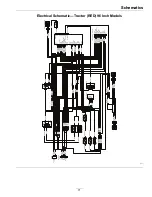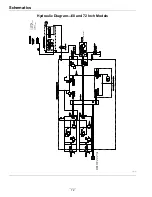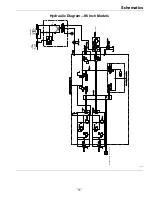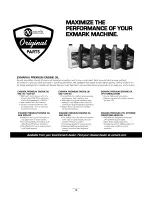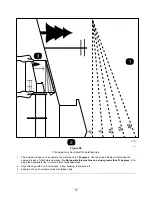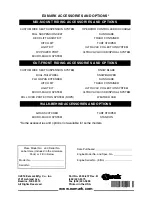
Maintenance
Blow through with low pressure air from both
directions. If debris remains, repeat until clean.
7.
Lower hood.
8.
Start the engine to ensure the fan is functioning
properly.
Clean Debris From Machine
Service Interval: Before each use or daily
1.
Stop engine, wait for all moving parts to stop, and
remove key. Engage parking brake.
2.
Clean off any oil, debris, or grass build-up on the
machine and cutting deck, especially under deck
belt shields, around the fuel tank, around engine
and exhaust area.
Clean Grass Build-Up Under
Deck
Service Interval: Before each use or daily
1.
Stop engine, wait for all moving parts to stop, and
remove key. Engage parking brake.
2.
Raise deck to the transport position.
For 96 inch models, raise the center deck and
outer wings. Lock each wing in the up position.
3.
Lift the front of machine and support it using jack
stands or equivalent support.
CAUTION
Raising the mower deck for service or
maintenance relying solely on mechanical
or hydraulic jacks could be dangerous. The
mechanical or hydraulic jacks may not be
enough support or may malfunction allowing
the unit to fall, which could cause injury.
Do Not rely solely on mechanical or hydraulic
jacks for support. Use adequate jack stands
or equivalent support.
4.
Clean out any grass build-up from underside of
deck and in discharge deflector.
Inspect Engine Valve
Clearance
Service Interval: Every 800 hours
Inspect the engine-valve clearance. Refer to the
engine owner’s manual.
Waste Disposal
Motor Oil Disposal
Engine oil and hydraulic oil are both pollutants to
the environment. Dispose of used oil at a certified
recycling center or according to your state and local
regulations.
Battery Disposal
DANGER
Battery electrolyte contains sulfuric acid, which
is poisonous and can cause severe burns.
Swallowing electrolyte can be fatal or if it touches
skin can cause severe burns.
•
Wear safety glasses to shield eyes, and rubber
gloves to protect skin and clothing when
handling electrolyte.
•
Do Not swallow electrolyte.
•
In the event of an accident, flush with water
and call a doctor immediately.
Federal law states that batteries should not be placed
in the garbage. Management and disposal practices
must be within relevant federal, state, or local laws.
If a battery is being replaced or if the unit containing
the battery is no longer operating and is being
scrapped, take the battery to a local certified recycling
center. If no local recycling is available return the
battery to any certified battery reseller.
65

